MF CASR Publications
For full CASR Fellow publications, click on individual Fellows.
Recent Book Releases
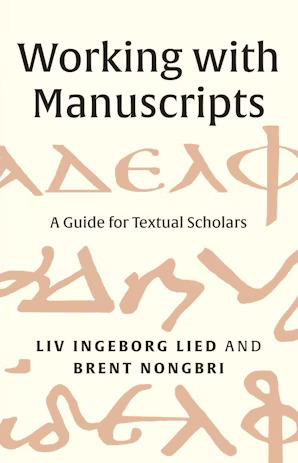
Working with Manuscripts: A Guide for Textual Scholars - Liv Ingeborg Lied and Brent Nongbri
While manuscripts are rare in most of the world today, they were once ubiquitous. Before the printing press, literature was preserved and transmitted through handwritten copies containing variant readings, mistakes, corrections, and other unique features. Those who study premodern texts, however, often use as their primary sources not these diverse artifacts but critical editions that present a single convenient hybrid text.
Brent Nongbri and Liv Ingeborg Lied argue that knowledge of manuscripts is important for all interpreters of ancient texts, even if learning how to study them can be confusing and intimidating. In this book they draw on their decades of experience with Jewish and Christian manuscripts to demystify manuscript work. Combining their interests in manuscripts as material artifacts with the ethical issues surrounding the study of manuscripts, Lied and Nongbri guide students through the main phases of research, from considerations of provenance and access to the practicalities of on-site research, analysis, and publication. The book includes aids for locating manuscripts, helpful case studies, tips for organizing data, a glossary, suggestions for further reading, and more.

The Authentic Paul: Critical Scholarship and the Making of a Christian Book - Gregory Fewster
Written in the first century and compiled in the New Testament, the letters of the Apostle Paul have served as a reservoir of divine authority for Christians. Yet from the time of their writing, experts have claimed that some letters were altered or forged. Even after centuries, and generations of critical scholarship, an authentic book of Paul’s letters lacks consensus.
The Authentic Paul traces the efforts of scholars, from antiquity to the modern period, who endeavoured to make an authoritative book of Paul’s letters free from textual variation and forgery. Engaging recent trends in the study of religion and book history, it challenges one of philologists’ fundamental assumptions: that authenticity is an inherent property of literature that can be recovered or destroyed. Gregory Fewster draws the philology of Paul, in both its ancient and modern forms, into the wider world of critical philology and its dynamic traditions of practice. Through analyses of ancient papyri and literary texts, early print journals, and critical editions, he shows how the value of authenticity is entangled with the ways that scholars assess Paul’s legitimacy and their own amid dense literary landscapes and intellectual debates.
The Authentic Paul illustrates in vibrant detail what it means – in a world full of texts – to make the letters of Paul authentic, and why practices of authentication are always culturally determined.
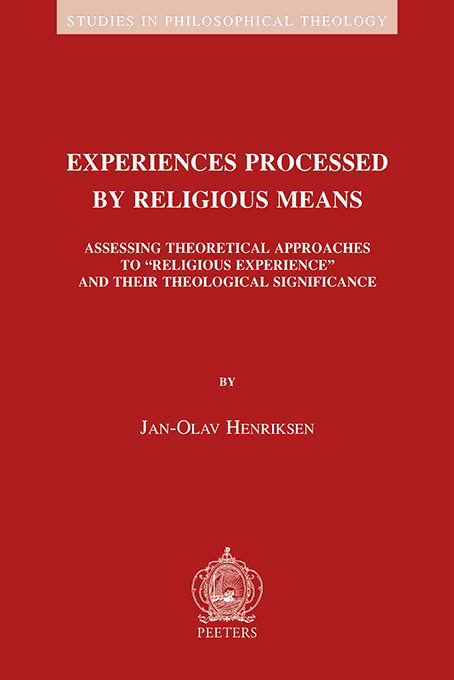
Experiences Processed by Religious Means: Assessing Theoretical Approaches to "Religious Experience" and their Theological Significance - Jan-Olav Henriksen
The practices of religious traditions contribute to processing human experiences in different ways: Sometimes by engendering experiences, sometimes by contributing to interpreting experiences as religious. By analyzing various established positions on so-called religious experience, Henriksen’s book contributes fresh analyses of these positions and approaches them by combining a hermeneutical and pragmatist approach. He develops an argument that focuses on the need to consider experiences processed by religion from both a first-person perspective and a third-person perspective. He argues for a non-reductionist, naturalist approach to these without eliminating their potential theological significance. Against the backdrop of the discussions about established scholarly positions, Henriksen also provides some concrete empirical examples that partly elucidate and partly challenge these. Thus, the book contributes to the ongoing debate about how to discuss experiences people understand as having religious significance.
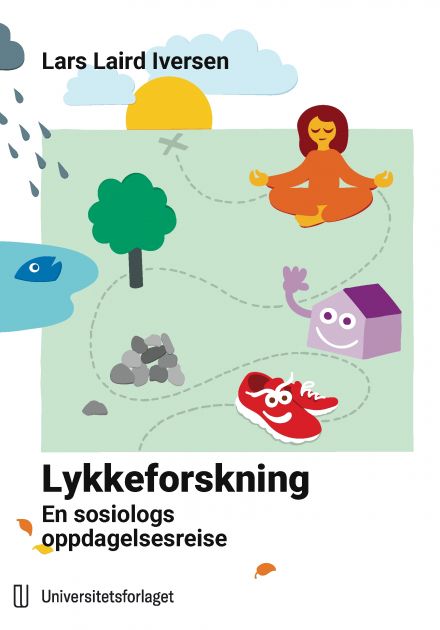
Lykkeforskning: En sosiologs oppdagelsesreise - Lars Laird Iversen
Lykkeforskning - en sosiologs oppdagelsesreise utforsker ulike forskeres forsøk på å forstå hva lykke er og hvordan man oppnår det. Boka er en sosiologisk respons på den voksende interessen for selvutvikling og et samfunnsvitenskapelig bidrag til forskningen på livsmestring.
Forfatteren tar for seg fem tema som lykkeforskningen er samstemt på at kan gjøre oss lykkeligere: fellesskap, bevegelse, natur, oppmerksom tilstedeværelse og ritualer. Funnene fra lykkeforskningen diskuteres så i lys av kritiske samfunnsvitenskapelige perspektiver.
Lykkeforskning er en tverrfaglig bok som retter seg mot studenter i sosiologi og andre samfunnsfag, samt et bredere publikum med interesse for lykkeforskning. Flere av eksemplene er hentet fra skolen, og boken vil være nyttig for de som arbeider med livsmestring og folkehelse, særlig innen samfunnsfag og KRLE.
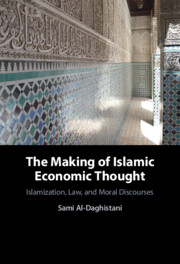
The Making of Islamic Economic Thought: Islamization, Law, and Moral Discourses - Sami Al-Daghistani
Interrogating the development and conceptual framework of economic thought in the Islamic tradition pertaining to ethical, philosophical, and theological ideas, this book provides a critique of modern Islamic economics as a hybrid economic system. From the outset, Sami Al-Daghistani is concerned with the polyvalent methodology of studying the phenomenon of Islamic economic thought as a human science in that it nurtures a complex plentitude of meanings and interpretations associated with the moral self. By studying legal scholars, theologians, and Sufis in the classical period, Al-Daghistani looks at economic thought in the context of Sharī'a's moral law. Alongside critiquing modern developments of Islamic economics, he puts forward an idea for a plural epistemology of Islam's moral economy, which advocates for a multifaceted hermeneutical reading of the subject in light of a moral law, embedded in a particular cosmology of human relationality, metaphysical intelligibility, and economic subjectivity.
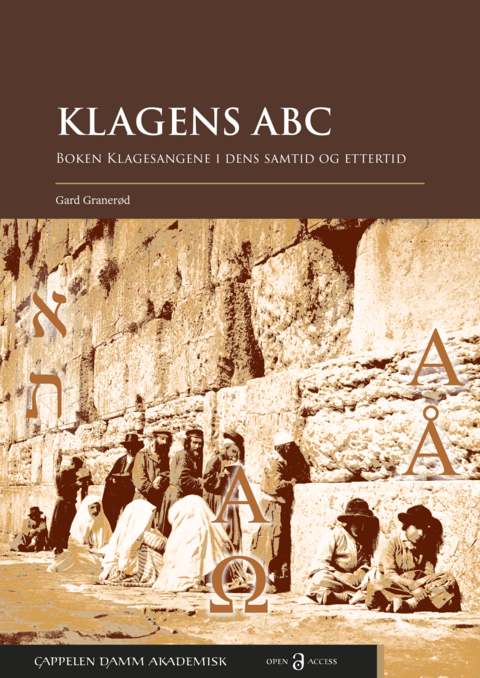
Klagens ABC: Boken Klagesangene i dens samtid og ettertid - Gard Granerød
Klagens ABC: Boken Klagesangene i dens samtid og ettertid analyserer den bibelske boken Klagesangene. Sentralt står spørsmålene: Hvordan kan vi oversette den hebraiske teksten og samtidig ta hensyn til grunntekstens poetiske virkemidler og innsikter fra nyere forskning på bibelhebraisk grammatikk? Hva er diktenes litterære form og innhold? Hvordan har lesere lest, forstått og brukt Klagesangene gjennom dens resepsjonshistorie?
Forfatteren drøfter Klagesangenes litterære form, dens religionshistoriske, teologiske og historiske innhold og dens kontekster. I tillegg drøftes utvalgte stasjoner langs Klagesangenes nomadiske vandring gjennom resepsjonshistorien. Boken kombinerer historisk-kritiske, litterære og formkritiske metoder. De fem diktene i Klagesangene analyseres ut fra kategoriene orientering (en tilværelse i likevekt), desorientering (en virkelighet ute av balanse) og nyorientering (en tilværelse hvor likevekten er gjenopprettet), inspirert av Walter Brueggemanns salmetypologi. På grunnlag av en nitid filologisk analyse av den hebraiske teksten presenterer forfatteren en ny, transparent norsk oversettelse. Et kjennetegn ved oversettelsen er at den i flere tilfeller forstår hebraisk perfektum (qatal) som en såkalt prekativ perfektum («bønneperfektum»).
Klagens ABC henvender seg til teologi- og religionsstudenter, forskere, kirkelige medarbeidere, legfolk og alle som interesserer seg for Bibelens klagelitteratur og gudsbilder i et teologisk og religionshistorisk perspektiv.
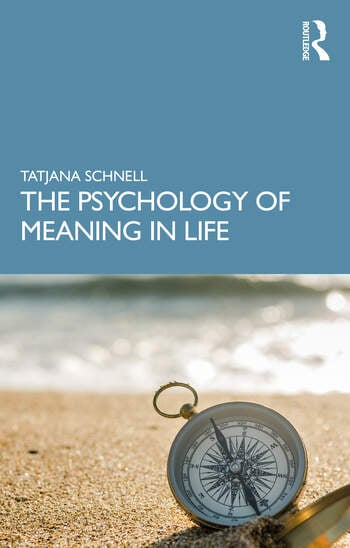
The Psychology of Meaning in Life - Tatjana Schnell
This book offers an inspiring exploration of current findings from the psychology of meaning in life, analysing cutting-edge research to propose practical, evidence-based applications. Schnell draws on psychological, philosophical and cognitive perspectives to explore basic concepts of meaning and introduce a multidimensional model of meaning in life.
Written in an accessible style, this book covers a range of topics including the distinction between meaning and happiness, the impact of meaning on health and longevity, meaning in the workplace, and meaning-centred interventions. Each chapter ends with exercises to encourage self-reflection and measurement tools are presented throughout, including the author’s original Sources of Meaning and Meaning in Life Questionnaire (SoMe), to inspire the reader to consider the role of meaning in their own life.
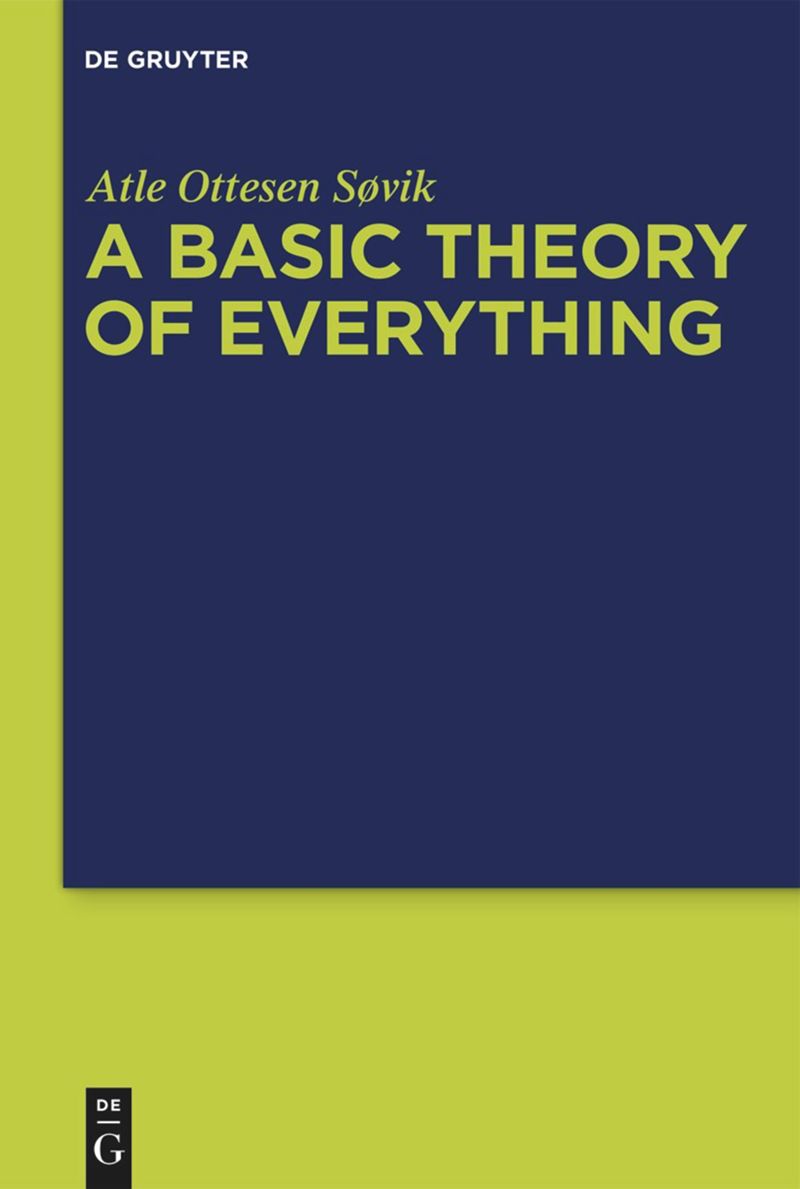
A Basic Theory of Everything: A Fundamental Theoretical Framework for Science and Philosophy - Atle Otteson Søvik
What are the basic building blocks of the world? This book presents a naturalistic theory saying that the universe and everything in it can be reduced to three fundamental entities: a field, a set of values that can be actualized at different places in the field, and an actualizer of the values. The theory is defended by using it to answer the main questions in metaphysics, such as: What is causality, existence, laws of nature, consciousness, thinking, free will, time, mathematical entities, ethical values, etc.? The theory is compared with the main alternatives and argued to solve problems better than the existing theories. Several new theories are suggested, such as how to understand mental causation, free will and the truth of ethics and mathematics.
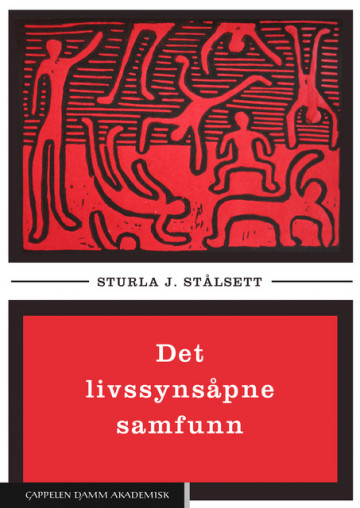
Det livssynsåpne samfunn - Sturla J. Stålsett
«Det livssynsåpne samfunn» er blitt et nøkkelbegrep i diskusjonen om religion og politikk i Norge og ligger til grunn for den nye Lov om tros- og livssynssamfunn, som gjelder fra 2021. Men hva er et livssynsåpent samfunn?
«Det livssynsåpne samfunn» representerer en bestemt, ny begrunnelse for politisk myndighetsutøvelse overfor tro og livssyn i samfunnet, ifølge forfatteren. I denne boka beskriver han hvordan det livssynsåpne samfunn er blitt til gjennom politisk debatt, utredninger og lovgivning, og han vurderer modellens sterke og svake sider. Han drøfter også prinsippene for et livssynsåpent samfunn i møte med dagsaktuelle utfordringer knyttet til likestilling, menneskerettigheter, symbolbruk og vold.
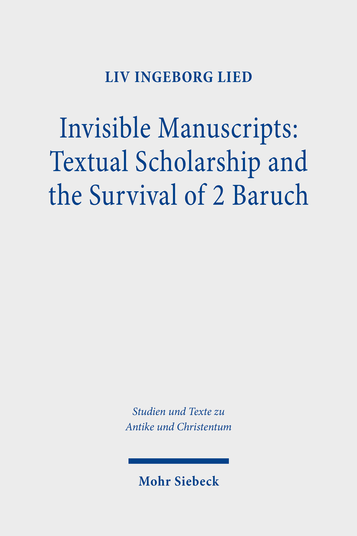
Invisible Manuscripts: Textual Scholarship and the Survival of 2 Baruch - Liv Ingeborg Lied
In this critical exploration of the role of manuscripts in textual scholarship, Liv Ingeborg Lied studies the Syriac manuscript transmission of 2 Baruch. These manuscripts emerge as salient sources to the long life of 2 Baruch among Syriac speaking Christians, not merely witnesses to an early Jewish text. Inspired by the perspective of New Philology, Lied addresses manuscript materiality and paratextual features, the history of ownership, traces of active readers and liturgical use, and practices of excerption and re-identification. The author's main concerns are the methodological, epistemological and ethical challenges of exploring early Jewish writings that survive only in Christian transmission. Through engagement with the established academic narratives, she retells the story of 2 Baruch and makes a case for manuscript- and provenance-aware textual scholarship.
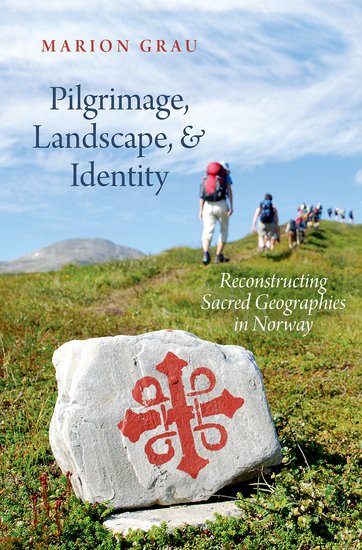
Pilgrimage, Landscape, and Identity: Reconstructing Sacred Geographies in Norway - Marion Grau
Grau's book explores the ritual geography of a pilgrimage system that arose around medieval saints in Norway, a country now being transformed by petroleum riches, neoliberalism, migration, and global warming. The study maps how pilgrims, hosts, church officials, and government officials participate in reshaping narratives of landscape, sacrality, and pilgrimage as a symbol of life journey, nation, identity, Christianity, and Protestant reflections on the durability of medieval Catholic saints.
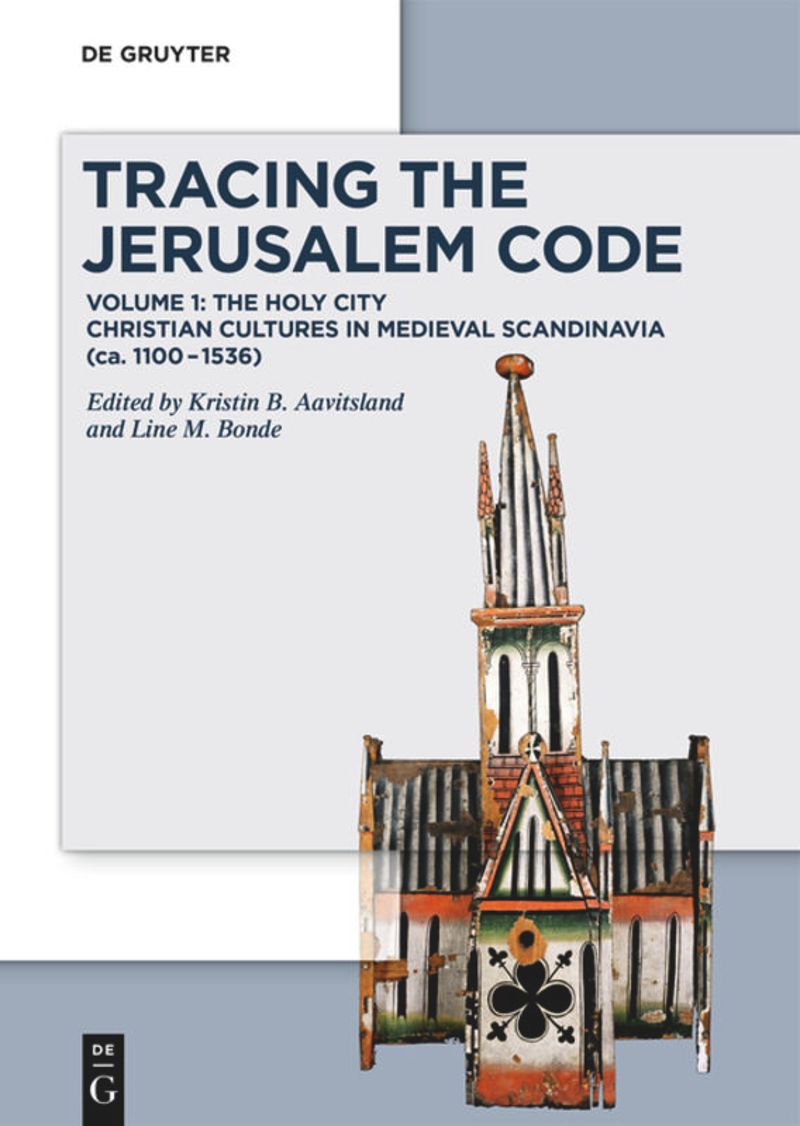
Tracing the Jerusalem Code, Volumes 1-3 - Edited by Kristin B. Aavitsland, Line M. Bonde, Eivor Andersen Oftestad, Joar Haga, Ragnhild J. Zorgati, and Anna Bohlin
With the aim to rewrite the history of Christianity in Scandinavia with Jerusalem as a lens, this book investigates the image – or rather the imagination – of Jerusalem in the religious, political, and artistic cultures of Scandinavia through most of the second millennium. Jerusalem is conceived as a code to Christian cultures in Scandinavia. The first volume deals with the different notions of Jerusalem in the Middle Ages, the second with Jerusalem's impact on Protestantism and Christianity in Early Modern Scandinavia, and the third with Jerusalem's the impact on Scandinavian Christianity from the 18th to early 20th centuries.
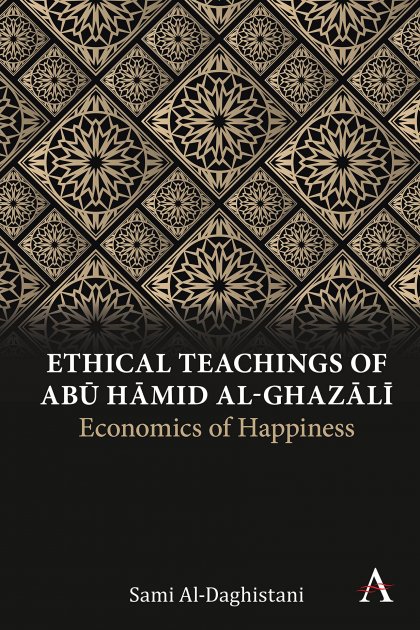
Ethical Teachings of Abū Ḥāmid al-Ghazālī, Economics of Happiness - Sami Al Daghistani
This book studies the interplay of economic philosophy and moral conduct as reflected in the writings of one of the most renowned scholars in Islamic history, Abū Ḥāmid Muḥammad ibn Muḥammad al-Ghazālī (d. 1111). As is well known, Imām al-Ghazālī, nicknamed “the proof of Islam”, contributed immensely to Islamic theology, philosophy, and Sufism or Islamic mysticism (taṣawwuf). Strikingly enough, al-Ghazālī also made seminal contributions to the field of economic thought, but this contribution has been largely neglected, although al-Ghazālī dedicated many chapters to what he considered just and Sharī‘a-based economic conduct in (Muslim) society. This book aims to analyse and revive al-Ghazālī’s understudied contribution to economic thought by emphasizing his economic philosophy and its correlation between Sharī‘a’s moral law and the tradition of taṣawwuf, as well as to situate his thought within the context of modern economic theories.
Special Journal Issues
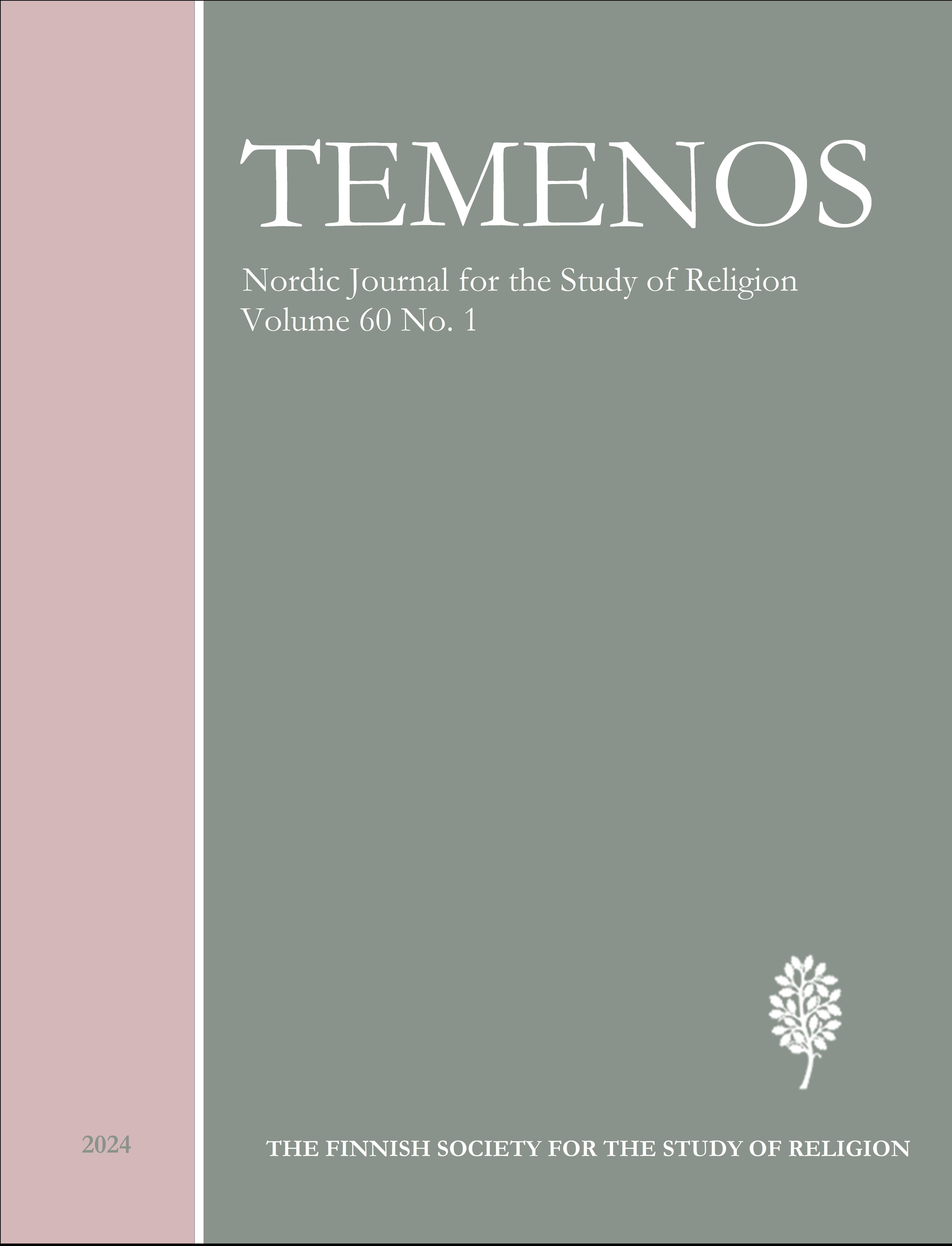
Burning the Qur'an - edited by Göran Larsson, Iselin Frydenlund, and Torkel Brekke
In this special issue of Temenos we wish to draw attention to and provide a contextualization and analysis of the burnings of the Qur’an that have taken and continue to take place in the Nordic context in recent years. Although many countries still have blasphemy laws or laws against religious hatred that protect ‘religion’ (however defined) or religious sensibilities from being desecrated or mocked, most Western countries, including Sweden and Norway, have removed blasphemy laws and made it possible to offer a critique of religion, including the right to criticize religious texts. While several articles in this special issue discuss the contemporary practice of public rituals where a physical copy of the Qur’an is burnt, we argue that understanding why this practice has become so widespread in the Nordic region requires a historical awareness of how both blasphemy and the freedoms of religion and expression have been understood and practised in this very specific cultural and political environment in the far corners of Europe.
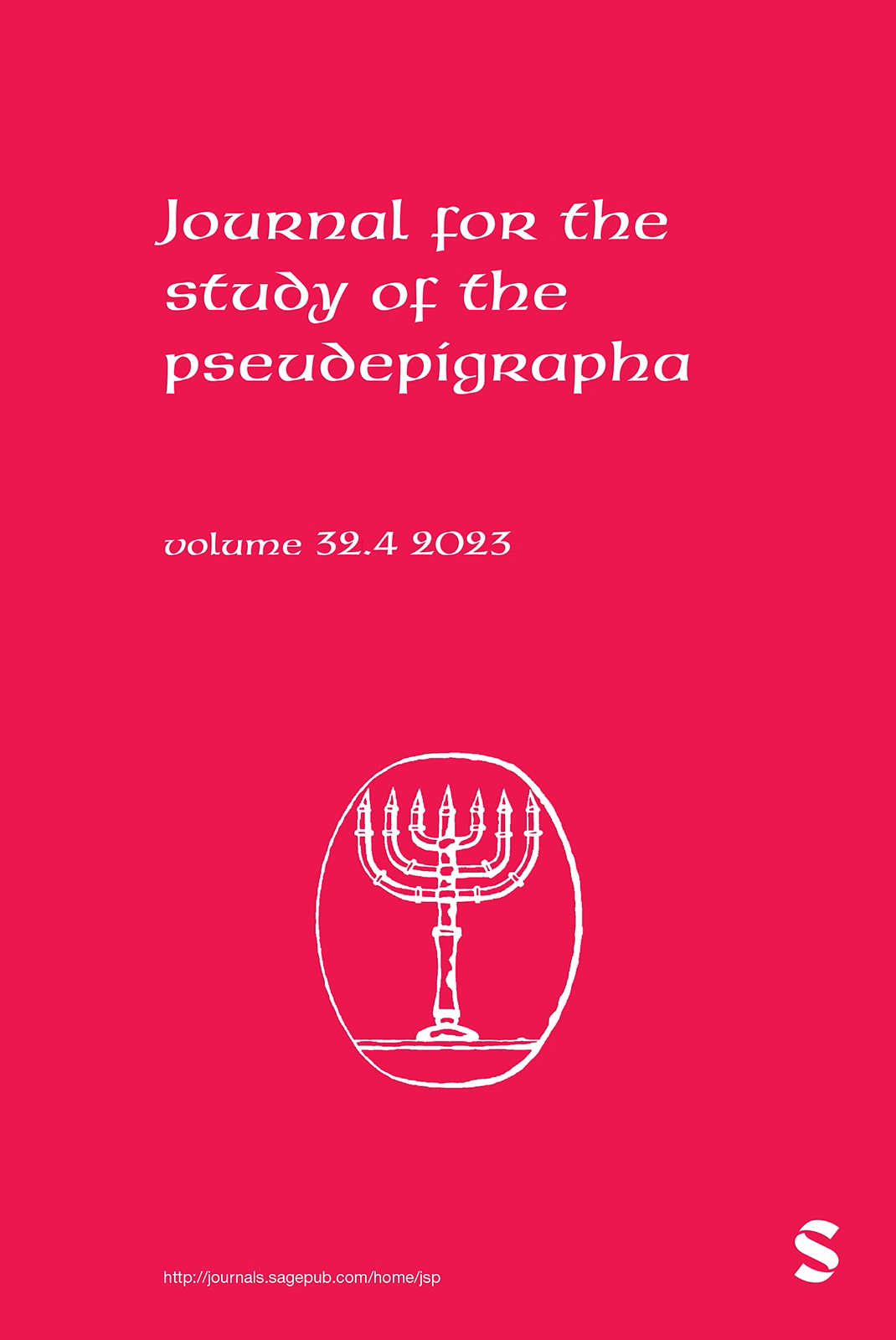
Books Known Only By Title - edited by Liv Ingeborg Lied, Marianne Bjelland Kartzow, and Esther Brownsmith
This special issue of the Journal for the Study of the Pseudepigrapha aims to introduce the concept of “books known only by title” as a fruitful new focus of research in the larger field of first-millennium Jewish and Christian literatures. Books known only by title are named literary objects known only through the medium of other writings, surviving neither as extant documents nor as excerpts or quotations of any substantial length. Still, these books are far more than “lost,” “false,” or “forged”: they were vital components of the first millennium literary imagination. This introductory essay provides a conceptual and methodological framework for the study of this hitherto unexplored phenomenon and offers an initial overview of key functions of books known only by title in book lists and literary texts.
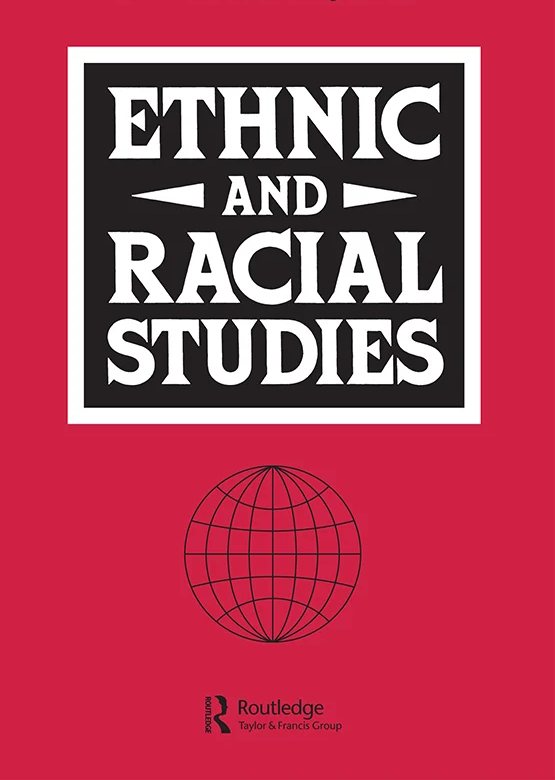
Global Flows of Islamophobia - edited by Bharath Ganesh, Iselin Frydenlund, and Torkel Brekke
in the Special Issue, we critically assess current theorizations that contend that US imperialism and racialization are fundamental to Islamophobia. The scholarship collected in this Special Issue demonstrates that these are only two of many important dimensions of global Islamophobia. This editorial introduces a matrix of global flows and modalities of Islamophobia as a framework to support global, comparative research on Islamophobia that goes beyond the “Western horizon” that characterizes current research in the field. Then, it describes these flows and modalities and how they provide a coherent basis for research on Islamophobia at a planetary scale. The articles, which focus on transnational articulations of Islamophobia and the role of Islamophobia in group-making across the world, demonstrate the plasticity and compatibility of Islamophobia with a wide range of political agendas, cultural contexts and identities.
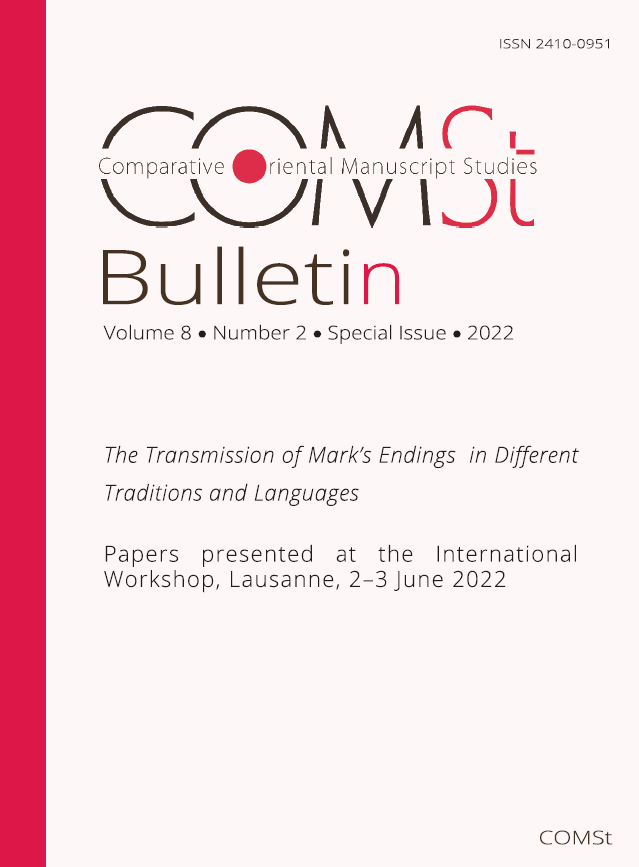
The Transmission of Mark's Endings in Different Traditions and Languages: Papers presented at the International Workshop, Lausanne, 2-3 June 2022 - edited by Claire Clivaz, Mina Monier, and Dan Batovici
The first online conference hosted by the five-year Swiss National Science Foundation project ‘MARK16’—held from Lausanne (CH) in September 2020 and published in 2021—had, as its purpose, to highlight and strengthen the bridges between ancient codicology and digital humanities, focusing on the creation of virtual research environments (VRE). The second ‘MARK16’ online conference, held from Lausanne in June 2022, also built bridges, but between ancient languages and traditions surrounding Mark 16, and between New Testament (NT) exegesis and textual criticism. This interdisciplinary subject is the focus of a publication of selected papers in this ‘MARK16’ Com-parative Oriental Manuscript Studies (COMSt) Bulletin special issue.

"Love Jihad": Sexuality, Reproduction and the Construction of the Predatory Muslim Male - edited by Iselin Frydenlund and Eviane Leidig
This Special Issue explores so-called “love jihad”, here defined as the notion that Muslim men strategically allure and entrap non-Muslim women with the intent to marry and convert them to Islam as part of an Islamization project. The aim of the Special Issue is two-fold. First, it explores the international spread of the trope “love jihad”, as well as its interpretations and usages in diverse cultural settings, welcoming discussions on “love jihad” from a wide range of cultural and national contexts from across the globe. Second, the specific term “love jihad” should not limit its conceptual expanse. We propose to use “love jihad” as an analytical concept for exploring related concepts (such as “sexual jihad” and “demographic jihad”), as well as related notions of Muslim men as sexual predators (in certain geographical settings known as “rapefugees”). Therefore, articles that discuss related concepts (not least Islamic womb fare, “grooming”, “The Great Replacement”, and “unethical conversion” in marriage) are also of interest, given that they relate to flows of gendered nationalist imaginaries of the Muslim “Other”. This Special Issue aims to contribute to the study of Islamophobia as a global phenomenon and to deepen our understanding of the gendered imaginaries of anti-Muslim nationalist formations across the world. It is part of Intersecting Flows of Islamophobia (INTERSECT) funded by the Research Council of Norway.
